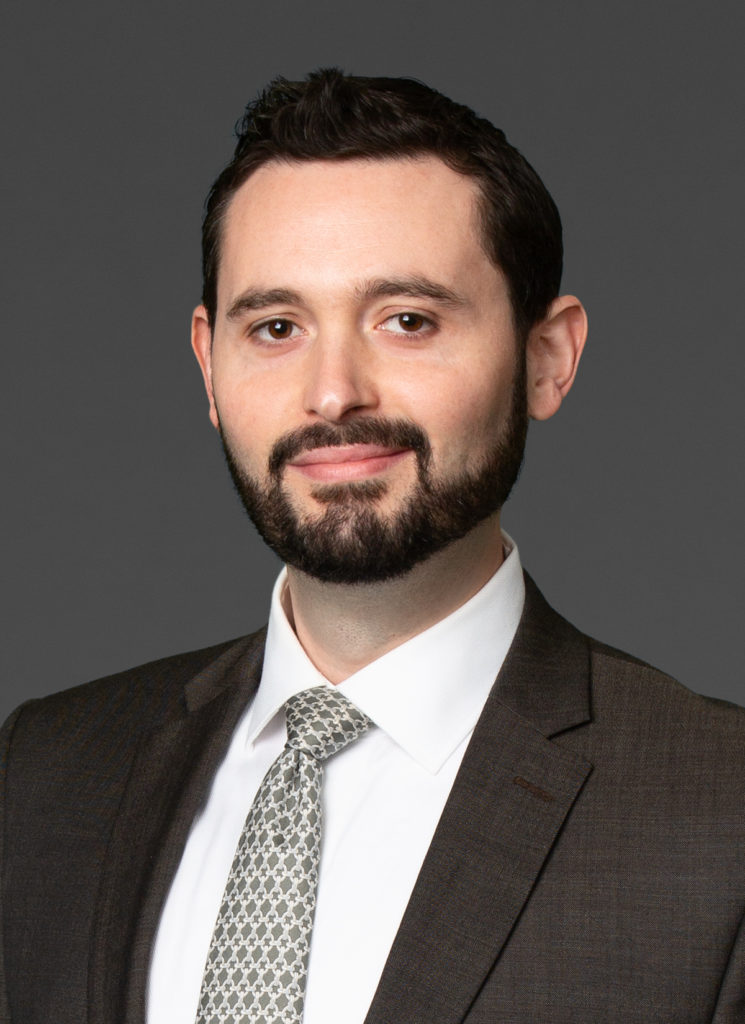Like almost all queer people, I’ve dealt with insults, snide comments, and sometimes physical threats as a result of my sexual orientation. Luckily, however, I was privileged to have a progressive family that supported me, and despite being raised in a conservative enclave in Dallas, my community and school were nevertheless safe and (mostly) accepting of who I was. As a result, I largely avoided the overwhelming discrimination, harassment, and abuse that causes queer youth to face the highest rates of homelessness and suicide in the country.

Although it would have perhaps been wiser as a queer kid in Texas to fly under the radar, I’ve always spoiled for a fight (I’m a litigator at heart, I suppose). So during high school I pushed to start our school’s Gay Straight Alliance, and then volunteered and served on the national board of the Gay Lesbian Straight Education Network (the nation’s largest LGBTQ+ advocacy organization for K-12 students).
Yet despite my comfort with both my own sexuality and my place in my family and community, when I started my legal career, I still confronted the fundamental question of how to come out at work. I weighed whether I’d be able to develop a white collar defense practice if I was out at the office as openly bisexual to my colleagues. And even if I could pursue that career while out, I wondered if I could do it here in my home state of Texas, or would I have to move to New York City, or LA, or San Francisco, or somewhere else that was more “accepting” of who I am.
This uncertainty drove my decision to go to law school in the Northeast, because although I loved Texas and wanted to build my life here, I worried that if the legal community didn’t welcome me, I’d need to try to be as marketable as possible by having non-Texas legal connections. But this decision came with costs. Going to law school out of state meant steeper tuition; almost triple the cost of matriculating in Texas. And—as has become more apparent as my career progresses—going to law school elsewhere also cost me the business and legal connections that I might have developed among a cohort of Texas-based classmates.
My compromise though was this: while I’d go to school out of state, I’d pursue summer associate opportunities at home in Texas to see what the legal community was really like. And I was fortunate enough to secure summer associate positions at two firms in Dallas, through which I was able to experience firsthand what professional opportunities could exist here in Texas for queer attorneys.
But to be candid, when I accepted an offer in 2011 to come back to Texas to begin my career, I still had reservations, and wondered whether I’d eventually leave to practice law elsewhere.
Ten years later, I’m still here.
I won’t tell you that living and practicing in Texas as a queer person is easy. Although legal protections and rights for the LGBTQ+ community have increased since I was a summer associate, those protections are patchwork in Texas, and there are many ways in which the lives of queer Texans are still put at risk. In most counties in Texas, for example, housing discrimination on the basis of sexual orientation or gender identity is legal, and 90% of transgender Texans have reported being mistreated in the workplace. This past session alone, there were over 30 bills proposed in the Texas legislative session that targeted the rights of queer Texans, including children.
But again, I’ve been lucky: my fears of practicing in Texas as an out, bisexual attorney largely—and happily—failed to materialize. Through my internal investigations and compliance counseling work, I often interact with clients throughout Latin America, as well as developing countries in Africa and Asia. However, having a husband (instead of a wife) has never gotten in the way of developing the meaningful client relationships that are the hallmarks of a successful representation. And to my surprise, being queer has often been considered an asset for the increasing number of clients who are emphasizing diversity and inclusion among their outside counsel teams.
When I was recruited to join Sidley Austin’s growing white collar practice in Dallas in 2018, the office’s incredible diversity (and of the firm writ-large) was one of the most important factors that I considered before making my move. And during my time here, I’ve been overjoyed to watch Sidley continue to emphasize its commitment to the queer community by increasing recruitment of LGBTQ+ associates, adding preferred pronouns to our email signature blocks, and filling the ranks of the firm’s leadership with queer partners. More personally, however, as the co-chair of the associate diversity committee, I’ve also been blown away by the support that my Dallas colleagues have offered to the local queer community, from providing LGBTQ+ asylum seekers with pro-bono representation to donating to local non-profits with whom I volunteer, and even hosting events for the queer community in our office space. In a way that I could not have anticipated ten years ago, Sidley has provided me with a platform to continue advocating for the safety and well-being of the queer community, and has taught me that professional success for queer voices in Texas is not only possible, but is celebrated.
While Texas itself still isn’t perfect, there’s also no place like home. So as we celebrate Pride this month, I want to thank everyone who supported me, and helped me see that being myself and building my career were one and the same.
And for everyone else, just remember: Y’all means all.
David Silva is an associate in Sidley’s White Collar and Commercial Litigation and Disputes practices.
